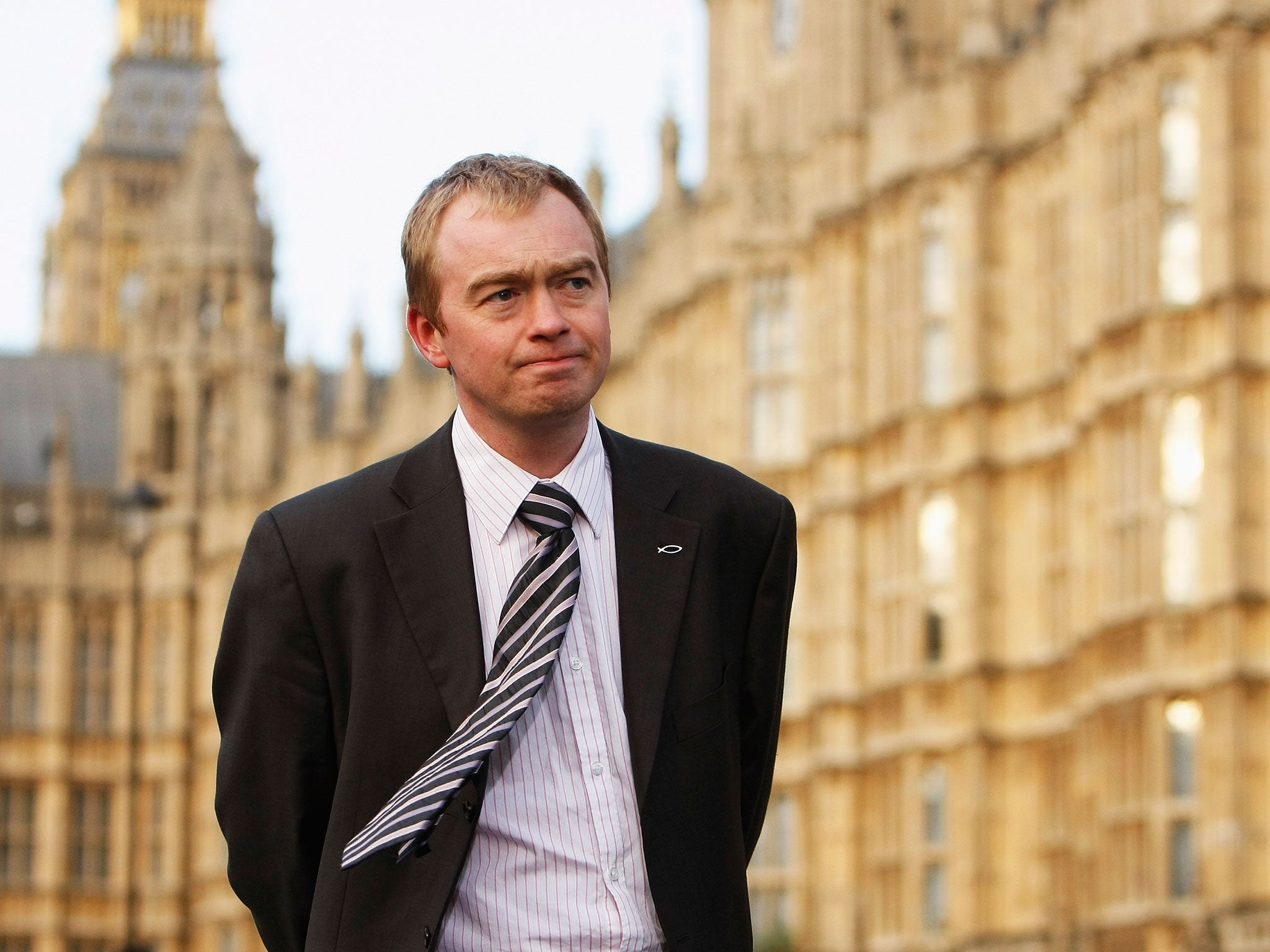Tim Farron to propose massive overhaul of UK electoral system
Farron focuses on PR as leadership campaign gains ground with backing from party’s sole MEP

Tim Farron, the Liberal Democrat leadership favourite, will propose another “Great Reform Act” to overhaul Britain’s electoral system on one of the few days that the weakened party will have significant parliamentary influence.
Mr Farron told The Independent on Sunday that he will use one of the party’s first opposition debate days, which are expected once every two months, to push for a system of proportional representation. Mr Farron wants PR – whereby the number of votes would reflect the percentage of representatives – to be applied to the House of Commons, local government and even the Lords, should the upper chamber become fully elected.
The original Reform Act, passed in 1832, was one of the most important laws in Britain’s history. It transformed Parliament into a modern democracy and its sequel, in 1867, enfranchised about 1.5 million men.
The Lib Dems were devastated by the election, holding on to only eight seats; in 2010 they returned 57 MPs. Nick Clegg, the former party leader and deputy prime minister, now shares an office with Tom Brake, who had been deputy leader of the Commons in coalition.
Mr Farron is now battling with Norman Lamb, the former health minister, to succeed Mr Clegg in a tough race. He is widely credited with being ahead because of not serving in a coalition that was unpopular among the predominantly left-of-centre grassroots.
Due to their vastly reduced numbers, Lib Dems will have little sway in the Commons during this Parliament, although they still have more than 100 peers. Mr Farron is determined to focus on reforming an electoral system that does not reflect his party’s national share of the vote. Under PR, the Lib Dems would have held around 50 seats while Ukip – with a sole MP, Douglas Carswell, whom they hope will support the idea – would now have more than 80 MPs.
Mr Farron told the IoS this weekend: “People need to know their votes can make a difference and we need to restore their faith in politics. One way to do this is voting reform. We need another great reform act. In 1955, just 37 MPs were elected despite a majority of their constituents not voting for them – by 2010 this had gone up to 433.
“Lib Dems have long argued for electoral reform, and the case for it has never been stronger. But let’s not just confine this to the House of Commons – let’s reform the House of Lords and local government at the same time. Let’s have a great reform act.”
Tactically, the Lib Dems see this as a “challenge to Labour”, as one aide put it, because the opposition must decide if it wants to be seen as electorally progressive at a time when the Scottish National Party’s overwhelming dominance north of the border has completely changed Parliament’s arithmetic. The SNP’s call for greater devolution of powers chimed with the Scottish electorate and the party won 56 of 59 seats. If the Lib Dems gain Labour support, the party would be seen to have mainstream influence again. If Labour refuse to back them, the Lib Dems calculate that they could own a policy that is gaining support across the country.
In the meantime, Mr Farron has gained another important Lib Dem backer in his bid for the leadership. The IoS can reveal that the party’s only MEP, Catherine Bearder, believes the Lake District MP is the “stalwart campaigner” the party needs. She said: “The Lib Dems have taken a pounding over the last couple of years. We’ve been so busy with government that we forgot to remind ourselves and our voters just why we are Liberal Democrats – the message back from them at the election was loud and clear.
“Tim has all the skills and drive to reach out to our existing members, those who have recently joined – and those who will join when they know how important it is to have Lib Dems defending the values we all hold dear.”
A Social Liberal Forum analysis of the Lib Dems’ election result highlights the true extent of the disaster. The party came first or second in only 71 seats – 11.3 per cent of the 631 constitutencies it contested – and were fourth or worse in 528 constituencies.
Join our commenting forum
Join thought-provoking conversations, follow other Independent readers and see their replies
Comments